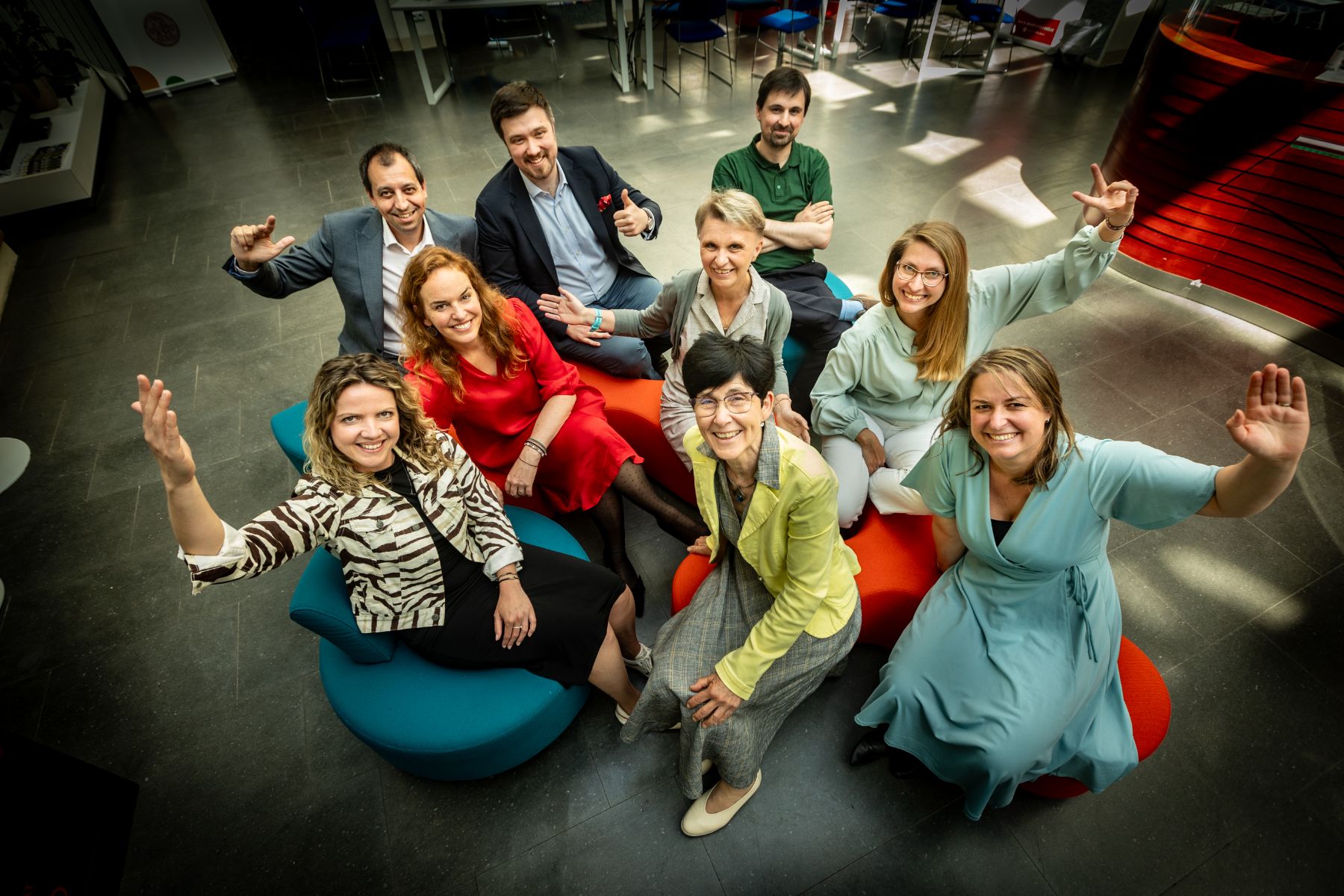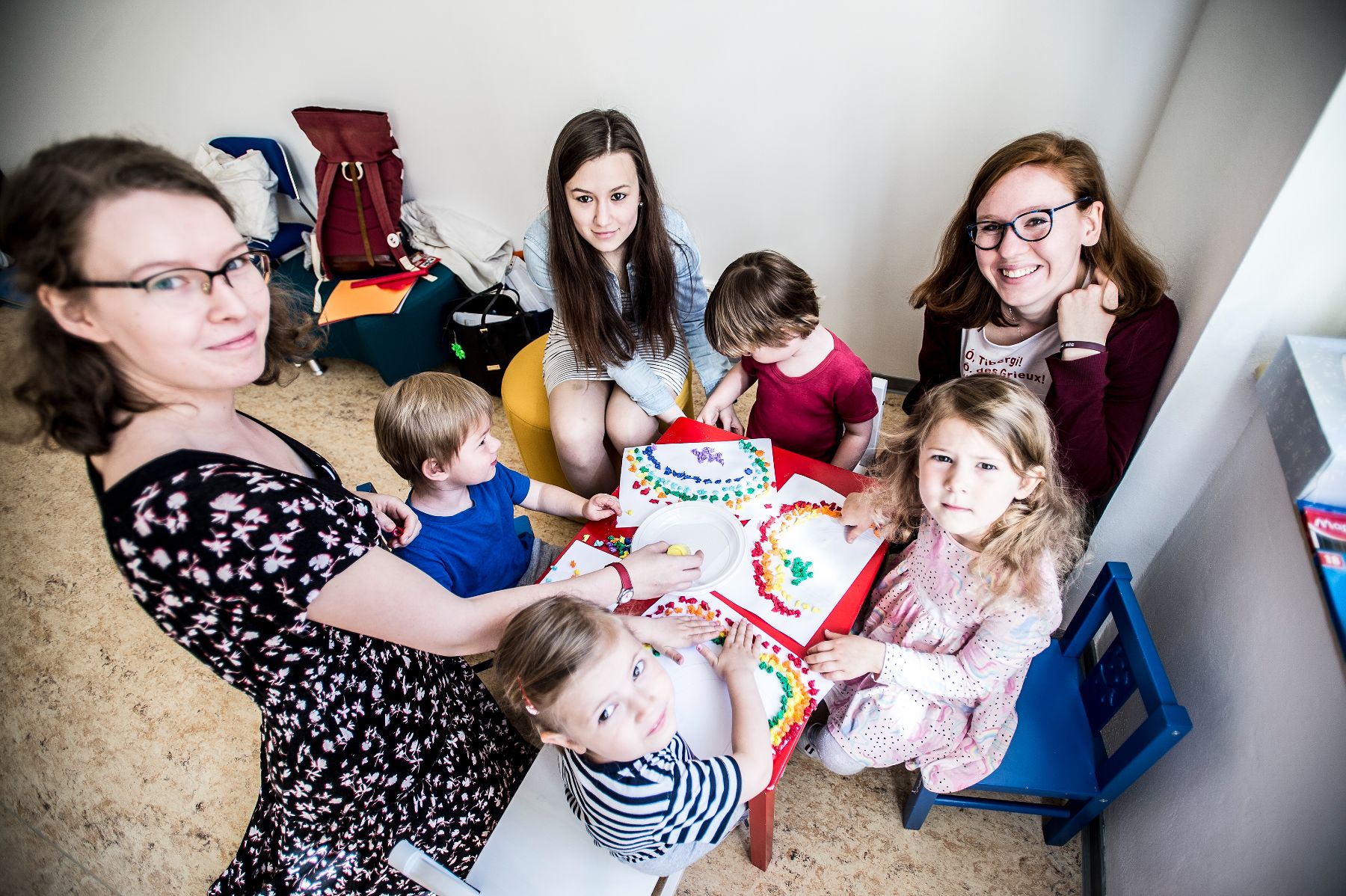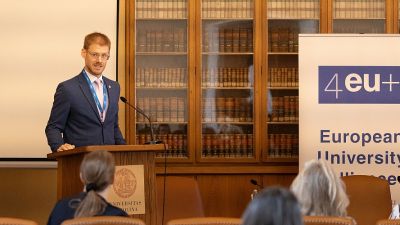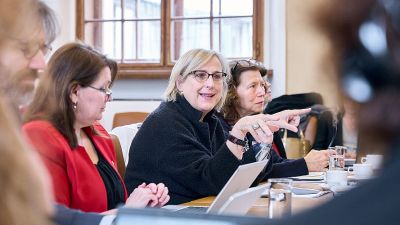This year marks five years since Charles University was awarded the HR Award, which aims to improve working conditions for female and male employees at research institutions across Europe. What did the recognition bring to Charles University and what are the plans for the coming years?
“The Human Resources Strategy for Researchers (HRS4R) is a European strategy that seeks to improve the working conditions of male and female scientists at research institutions across Europe. If an institution succeeds, it receives the HR Excellence in Research Award from the European Commission - Charles University received it in February 2019,” Věra Št'astná, HR Award Coordinator at Charles University, explains.
The strategy can be seen as a good practice recommendation. Each institution analyses and identifies for itself where it has gaps and shortcomings, and then proposes an action plan of steps and measures to deal with chaallenges. Charles University signed up to the European Charter for Researchers and the Code of Conduct for the Recruitment of Researchers in 2017, was awarded the HR Award in 2019 and launched its first action plan (2019-2020). In 2021, an interim international evaluation was conducted, which went very well for Charles University, and the second action plan (2021-2023) was launched. This year, Charles University will face an international evaluation, the defence of the HR Award certificate and the third action plan for the period 2024 - 2026.
“The work on the individual activities of our three-year action plan has been very intensive and I thank all those who participated in them. In doing so, I am very pleased to say that we made significant progress in a number of areas. I have been similarly pleased with the positive feedback from individuals working at the CU who are noticing that things are changing. At the outset, many individuals were sceptical, seeing the activities under the umbrella of the 'HR Award' as a necessary but partly empty project that would not make much difference. Instead, they now see concrete outputs and changes,” says Milena Králíčková, the rector of Charles University.
Equal opportunities and internationalisation
“For the first action plans, Charles University chose a few key points that we have focused on as a priority; you cannot change everything at once,” explains Věra Št'astná. “A new Recruitment Procedure Code was created, which reflects the principles of the so-called open, transparent and merit- -based recruitment - an open, transparent and merit-based recruitment procedure,” confirms František Lukáš, the head of the Personnel and Payroll Department of the Rector's Office of Charles University.
Charles University has also launched a new career website and employee handbook, where all interested parties can find out basic information about the university, details about selection procedures, as well as information about employee benefits and a range of other practical information. The range of lifelong learning and activities for staff development and wellbeing has also been expanded. A special website for PhD students has also been created, which clearly summarises the offer of additional courses for doctoral studies.
The second key theme was equal opportunities and ensuring social security for the entire academic community and all male and female staff. “We perceive equal opportunities at Charles University as a cross-cutting theme that needs to be addressed not only at the level of reconciling family and working life, in selection procedures or in the prevention of unequal treatment and inappropriate behaviour, but also in the area of developing educational competences or the gender dimension in research,” says Iveta Bayerová, coordinator of the equal opportunities agenda.
Another important area of change has been internationalisation, with the creation of the Staff Welcome Centre at CU Point, which not only provides services and practical advice to incoming international colleagues and their families, but also helps faculties with tax and insurance issues, for example. “Internationalisation is also strongly related to the fact that a great emphasis is placed on a bilingual environment so that all working documents, faculty websites, regulations and strategic plans are also available in English,” adds Simona Teplá, the head of the Staff Welcome Centre.
Plans for the coming years? Sustainable development and popularisation of science
“Although the university has managed to make significant progress in a number of areas, it will continue to do so in the next three-year period. The priority remains the area of selection procedures and their technical support, career development and the area of staff evaluation, improvement of working conditions and well-being, support for PhD students, postdocs and postdoctoral fellows, the area of internationalisation, open science, support for obtaining international grants or the development of IT support systems,” lists Věra Št'astná.
For the new action plan, Charles University has also set out four new topics, namely: ethics and development of social security at the University (especially through the work of the ombudswomen and faculty ombudsmen); the area of sustainable development; popularisation of the results of the scientific work of our academics; and the establishment of a panel of budding scientists with whom the University management will consult on important topics related to the development of science and research at Charles University.
|
What was achieved thanks to the HR Award?
And much more. For a full list of information regarding the HR Award, please visit the website. |




















